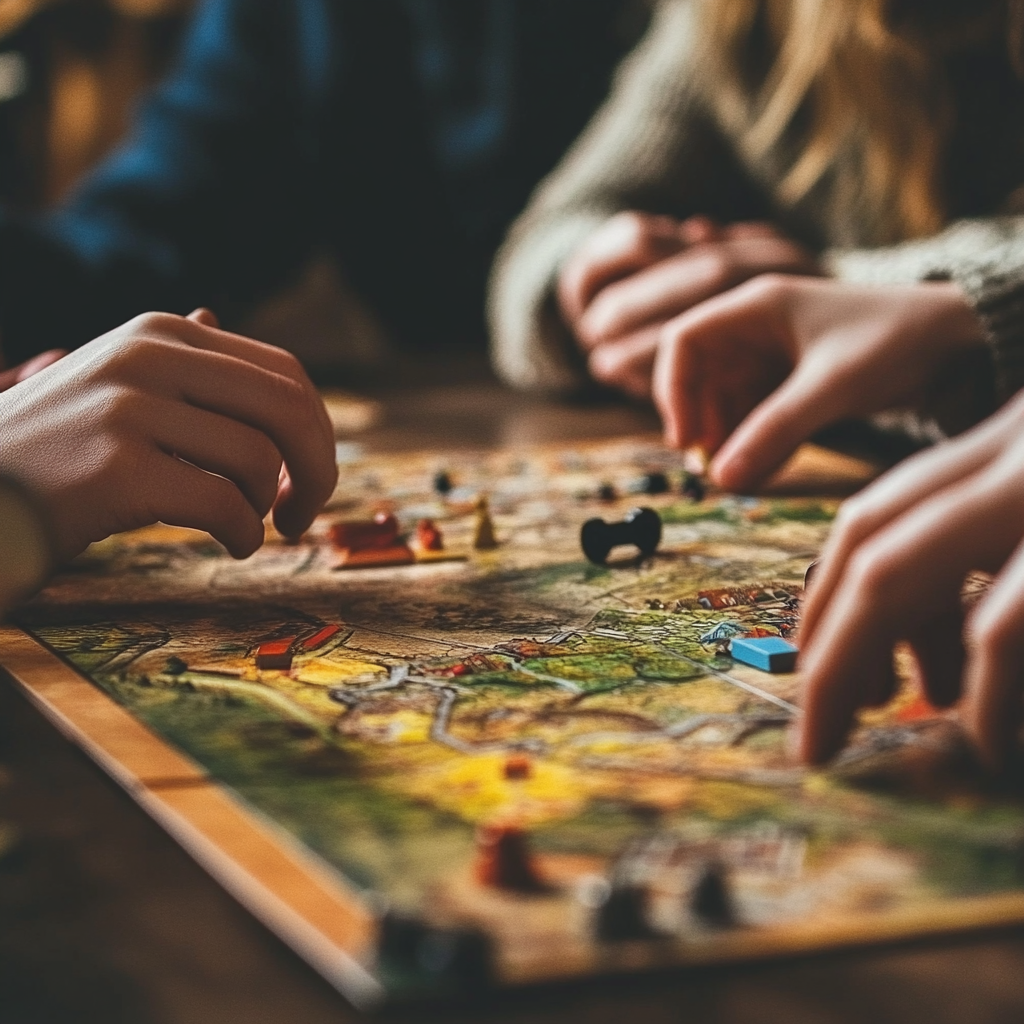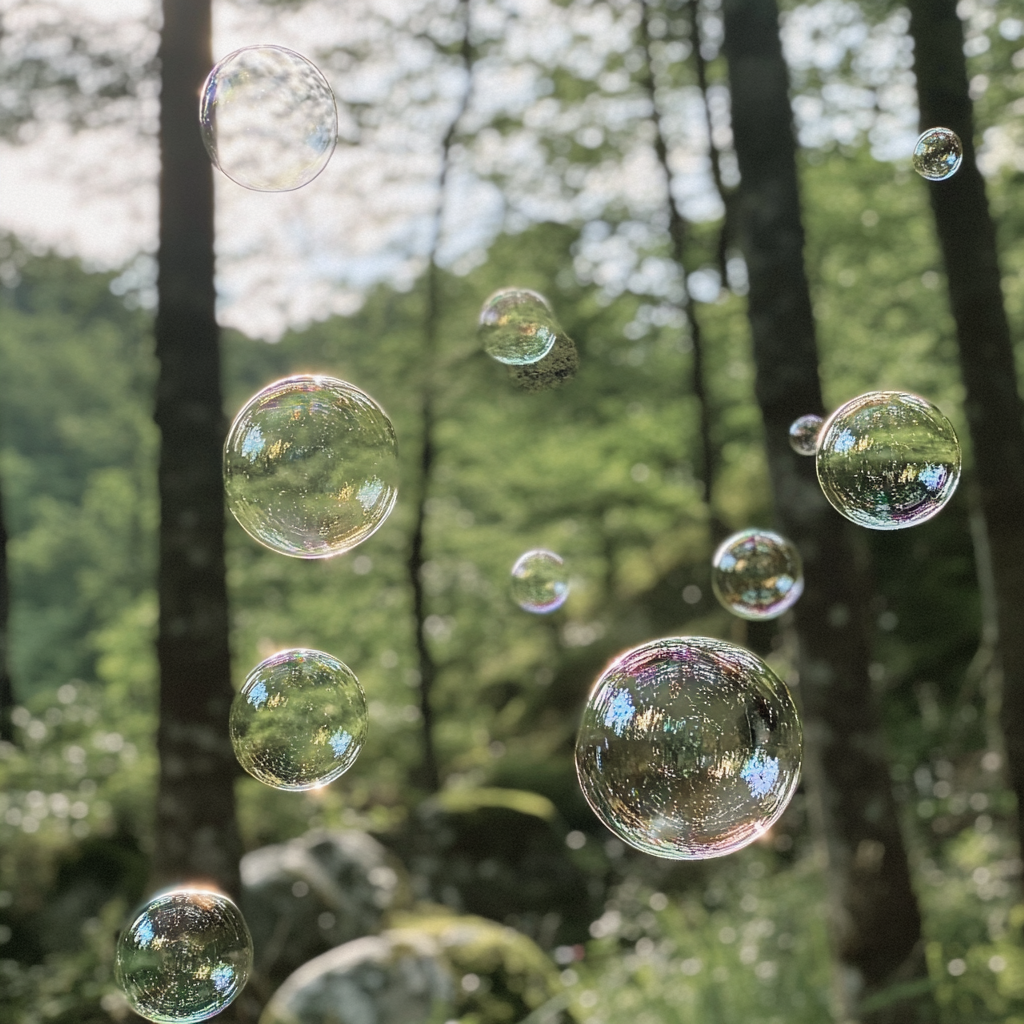
From Head Space to Heart Wisdom
Ever feel like there’s a fierce debate going on between your head and your heart? You’re not alone! While our minds are incredible problem-solving machines, they can sometimes turn into worry factories that drown out our heart’s deeper wisdom. Let
Continue reading
Dancing Through Life
Ever noticed how babies instinctively move to music? They don't worry about looking silly or following steps – they just feel the rhythm and go with it. Somewhere along the way, many of us lost that natural freedom. Today, let's rediscover the pure joy and surprising power of dancing like nobody's watching!
Continue reading
A Fresh Look at Health Goals
What if your body could write you a letter? What would it say? Would it celebrate your wins, gently nudge you toward better habits, or crack a joke about your late-night snack cravings? Let’s explore how tuning in to your body’s signals can transform your health journey into a genuine partnership.
Continue reading
Finding Peace in Surrender
Have you ever noticed how tightly we hold onto our plans, dreams, and expectations? It's like trying to grip water – the tighter we squeeze, the more it slips through our fingers. Today, let's explore the gentle art of surrender and how it can transform our daily lives.
Continue reading
Awakening Your Soul's Deepest Wishes
There's a particular kind of magic that happens when we allow ourselves to dream without limits. When we remove the "buts," the "what ifs," and the "I can'ts" from our vocabulary, we begin to hear our soul's true desires. Today, we're going to explore what lies beneath our conditioned responses and practical considerations to discover what your heart truly yearns for. Often, when asked what we want, we automatically filter our desires through the lens of what seems possible, practical, or acceptable. But true desires – those that come from our soul – don't operate within these limitations. They speak the language of possibility, of pure potential, of what could be if all limitations were removed.
Continue reading
The Journey Inward: Finding What You Already Have
In a world that constantly tells us to look outward for answers, we often forget the most profound truth: everything we seek is already within us. We chase external validation, search for guidance in endless books and podcasts, and look to others for the wisdom we already possess. Today, we're going to explore the journey back to your inner sanctuary, where all your answers patiently wait.
Continue reading
Embracing Your Authentic Self: The Courage to Be Seen
There comes a moment in every person's journey when hiding no longer serves us. When the weight of our carefully constructed masks becomes heavier than the fear of being truly seen. This is that moment – your moment to emerge fully into your truth. How many pieces of ourselves do we tuck away into shadow, believing they're too much, too different, or too intense for the world to handle? We've learned to dim our light, smooth our edges, and speak in whispers when our souls long to sing. But here’s the truth: every part we hide diminishes not just our own light but the light we could bring to others.
Continue reading
Am I Willing? Embracing the Edge of Greatness
Standing at the threshold of transformation is both exhilarating and terrifying. That flutter in your stomach, the quickening of your pulse – these are not just signs of fear, but indicators that you're alive with possibility. You're perched on the edge of something magnificent, and the only question that truly matters is: "Am I willing?"
Continue reading
Flipping the Script: Choosing Self-Kindness
Ever notice how easily you offer kindness to a friend when they mess up? You’re full of understanding and support. But when you make the same mistake? Cue the internal beatdown. It’s time to flip this script and start treating yourself with the grace you so freely give to others. Here’s the thing: self-compassion isn’t just warm, fuzzy fluff—it’s powerful. Research from Dr. Kristin Neff’s lab shows that practicing self-compassion reduces anxiety and depression and helps you recover faster from stress. Even more amazing? It’s backed by biology. When you’re kind to yourself, your body produces more oxytocin (the “love hormone”) and lowers cortisol (the stress hormone). It's like giving your brain and body a big, healing hug. Think of self-kindness as dropping a pebble into a pond. The ripples start with you but extend outward, touching everything in your life.
Continue reading
Playful Living: Unlocking Your Inner Joy
When was the last time you laughed until your stomach hurt, or fully immersed yourself in something just for the joy of it? Life can feel heavy, and we often bear so much responsibility that we lose sight of playfulness. But play isn't just for children - it's a fundamental human need that can reduce stress, boost creativity, and deepen your connection with others and yourself. Most importantly, it reconnects you with your wild, untamed, and joyful essence; the part of you that craves freedom from the grind of daily life.
Continue reading
Selling Your Soul to Market Your Coaching Business: The Ethics and Impact of Negging
What are you willing to trade for success? For many coaches, the temptation of quick results and persuasive tactics overshadows the cost to their integrity. Negging—manipulative language designed to instill self-doubt—is a prime example. It’s everywhere in marketing and even interpersonal relationships. But at what cost? This article explores the use of negging in marketing a coaching business, how it conflicts with the values of coaching, and how to identify and avoid it.
Continue reading
Turning Pain Into Purpose: How to Handle Negative Experiences in a Positive Way
Life is a journey of experiences, both uplifting and challenging. While the positive moments fill us with joy, the negative ones can leave us feeling hurt, angry, or even defeated. But what if we could handle those difficult moments in a way that heals our hearts and helps us move forward with grace, compassion, and purpose? Let’s explore strategies to process and transform negative experiences into growth opportunities while staying true to the best version of ourselves.
Continue reading
Spend Time Like the Currency It Is
Time is the most valuable currency we have. Unlike money, time cannot be earned back once spent—it’s fleeting, finite, and precious. Yet, many of us spend it carelessly, sometimes even mindlessly, on activities that leave us feeling drained, unfulfilled, or stuck in cycles of regret. Let’s take a moment to reflect: How are you spending your time? Are you investing it in what matters most, or are you spending it like spare change, scattered on fleeting distractions?
Continue reading
The Magic of Now: Discovering the Power of the Present Moment
Life is not about what happened in the past. Life is not about what will happen in the future. Life is happening right now, right at this very moment. This simple truth holds immense power—because the now is where all of life’s magic resides. The present is the only place where you can act, change, and grow. It’s the bridge between the unchangeable past and the unknowable future. When we live in the present, we open ourselves to endless possibilities. Regret, shame, and guilt from the past? They lose their grip when you choose to let them go. Anxiety, worry, and stress about the future? They dissolve when you realize that certainty isn’t a prerequisite for joy or action. By engaging in these simple practices, you’re not only grounding yourself in the moment—you’re also rewiring your brain. Neuroscience shows that small, mindful habits like these create new neural pathways, making your mind more resilient, calm, and focused over time.
Continue reading
Unveiling Your Inner Compass: A Journaling Guide to Authentic Self-Discovery
In a fast-paced world, it can be challenging to remember our true selves amidst the many roles we take on, the pressure to meet expectations, and the stories we create for ourselves. Yet, understanding ourselves—our innermost desires, beliefs, and drives—is essential for living a purposeful and satisfying life. This journaling guide invites you to step back, reflect, and reconnect with your authentic self. Through compassionate curiosity and guided prompts, you’ll uncover the patterns that shape your daily life and discover the tools to realign with your truth.
Continue reading
Sleep Hygiene: The Key to Restorative Sleep and Well-Being
Obtaining a full and restful night's sleep is paramount for our overall well-being, both physically and emotionally. Without it, we are often left feeling frazzled and overwhelmed, incapable of managing life's many demands. The effects of poor sleep go beyond just mood; they also detrimentally impact cognitive function, decision-making skills, and impulse control. It's like facing two battles at once: one against exhaustion and the other against the consequences of impaired functionality. But don't lose hope! There are many ways to improve your sleep hygiene and enjoy better nights of sleep. By implementing healthy routines, habits, and making adjustments to your environment, you can make a positive difference. Are you ready for a better night’s sleep? Let's get started!
Continue reading
Letting Go of the Week
It’s been a challenging week. Maybe it felt like you were spinning too many plates at once—trying to keep each one from toppling over. Some plates spun effortlessly, while others wobbled dangerously, demanding your full attention. Deadlines loomed, plans didn’t unfold as you hoped, and despite your best efforts, you couldn’t stop a few plates from crashing to the floor. Now, as you step into the weekend, you find yourself still holding onto that tension, your mind replaying the moments where you struggled to keep everything balanced. But what if you didn’t have to carry the weight of those broken plates? What if, instead, you could set them down, piece by piece, and realign yourself—mind, body, and emotion? Imagine each stress, each unmet expectation, each lingering thought about what could have been, as a bubble. You blow it into existence, watch it drift away, and when it pops, it takes the burden with it—leaving you lighter and freer. This is what today’s practice offers: a way to nurture all parts of yourself. Start by engaging your emotions with Bubble Breathwork, releasing what no longer serves you and inviting renewal with playful, intentional breaths. Then, move into Journaling, where you can clear your mind, reflect, and gain clarity about what truly matters. Finally, reconnect with your body through gentle Stretching, physically releasing any lingering tension and embracing lightness and ease. Together, these practices create a bridge from the stress of “there” to the calm of “here.” Let’s get ready for the weekend by honoring all parts of you—your emotions, your mind, and your body—through simple, intentional self-care. Ready to begin?
Continue reading
The Alchemy of Attention: Turning the Ordinary into Gold
I hurried down the busy street, rushing to get through the next thing on my to-do list. I barely noticed the vibrant flowers blooming in a nearby garden or the elderly couple holding hands on a bench. But then I stopped and took a deep breath, allowing myself to fully experience the present moment. Suddenly, every detail around me came into focus—the chirping birds, the warm sun on my skin, the laughter of children playing. As I walked toward my destination, I felt connected to the world around me, and a sense of joy filled my soul.
Continue reading
Learning to Embrace Compliments: A Path to Self-Acceptance
Have you ever felt uncomfortable when someone gave you a compliment? Maybe you felt a twinge of awkwardness, unsure of what to say. You might have brushed it off with, “Oh, it was nothing,” or downplayed it: “I didn’t really do anything.” Perhaps you redirected it back to them: “You did most of the work,” or even deflected entirely: “It wasn’t that great; I could do better.” For many of us, compliments can stir up feelings of unease. Even when they’re meant to uplift us, they often bring our insecurities bubbling to the surface. Have you ever caught yourself thinking or saying something like: * “I didn’t do much.” * “I still have so much to learn.” * “It’s not good enough.” * “I don’t know how I helped.” * “I’m nowhere as good as you.” In my work, I often focus on highlighting people’s strengths to empower and build them up. But I’ve noticed a pattern: some people respond to compliments almost as though they’re dodging bullets. They may say, “I didn’t finish yet,” or “I need to do better.” Others might compare themselves to someone else: “I always feel like you do so much more than me.” It’s almost as if the kind words are too much to bear, as though being acknowledged in this way feels exposing, uncomfortable—even threatening. This reaction got me thinking: Why do so many of us struggle with something as simple and beautiful as a compliment? Could it be that our self-love is so fragile that kindness feels like a spotlight on what we’re trying to hide? When we reject compliments, what are we really rejecting? Is it the praise itself, or the discomfort of being truly seen? Is it the fear that others’ positive perception of us doesn’t match how we see ourselves? Or is it that somewhere deep down, we believe we’re not enough—not deserving of such kind words?
Continue reading